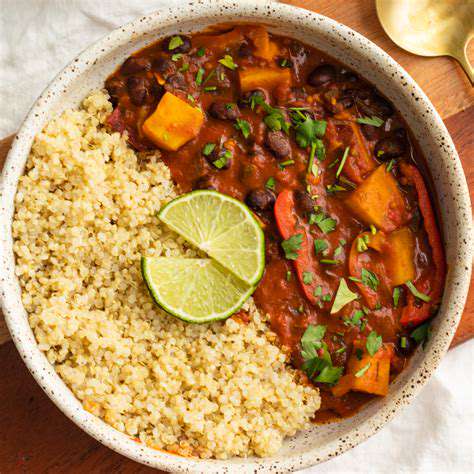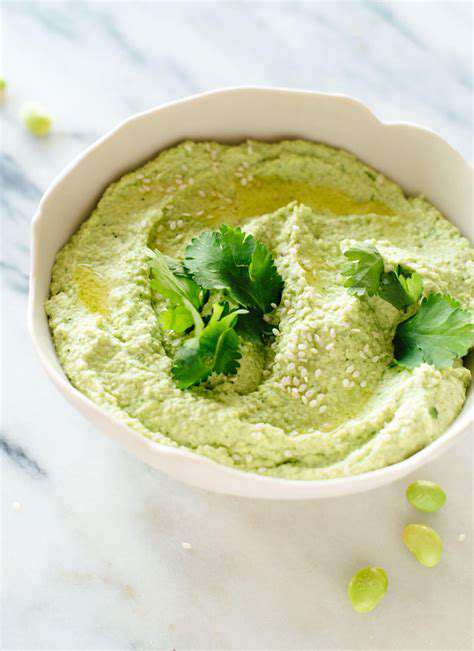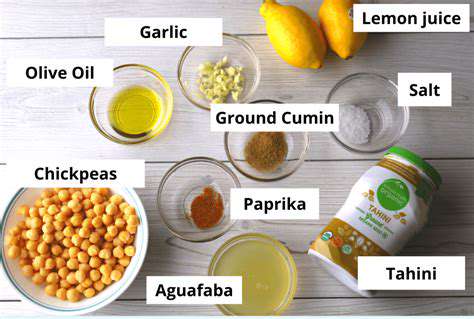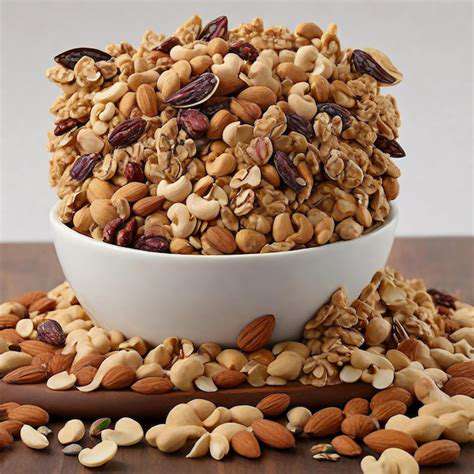Food Culture in Egypt: Ful Medames and Koshary
A Deliciously Simple Start to the Day
Ful medames, a dish of cooked fava beans, is more than just a breakfast staple in Egypt; it's a cultural cornerstone. The aroma of the simmering beans, often infused with a hint of garlic and cumin, wafts through homes and streets, signaling the start of a new day. This humble dish, prepared with simple ingredients, embodies a deep connection to tradition and embodies the heart of Egyptian cuisine. From bustling street vendors to family kitchens, the preparation and consumption of ful medames is a ritualistic experience, offering a taste of the rich tapestry of Egyptian life.
The preparation of ful medames is often a labor of love, with generations of cooks passing down their family recipes. The beans are soaked overnight, then simmered until tender, and often flavored with a blend of spices. The process itself is a testament to the dedication and care put into each dish, reflecting the importance of food in Egyptian society. This attention to detail is evident in the nuanced flavors and textures of the finished product, making it a unique culinary experience.
Beyond Breakfast: Versatility and Cultural Significance
While undeniably a breakfast favourite, ful medames transcends its role as a simple morning meal. It's a versatile dish, often served with warm pita bread, chopped tomatoes, and a generous dollop of tahini. This combination of flavors and textures creates a satisfying and flavorful experience, perfectly suited for any meal of the day.
The cultural significance of ful medames extends beyond its delicious taste. It's a symbol of Egyptian hospitality and communal dining. Sharing a plate of ful medames with loved ones fosters connections and strengthens community bonds. The simple act of enjoying this dish together creates a sense of belonging and shared experience, highlighting the importance of food in fostering social cohesion within Egyptian culture.
The dish's affordability and accessibility further solidify its place within Egyptian society. Ful medames is a staple enjoyed by people from all walks of life, demonstrating its profound connection to the everyday experiences and traditions of the country. Its availability at street vendors and local eateries makes it an easily accessible and affordable culinary experience for all.
In essence, ful medames is more than just a dish; it's a cultural experience, a social ritual, and a testament to the rich and vibrant culinary heritage of Egypt.
Beyond Breakfast: The Versatility of Ful Medames

Beyond the Initial Bite: Exploring Breakfast's Role in Daily Life
Breakfast, often relegated to a quick and rushed morning ritual, holds a surprisingly significant role in shaping our entire day. More than just fueling our bodies for the morning, a healthy breakfast sets the stage for better focus, improved mood, and sustained energy levels throughout the day. This initial meal provides essential nutrients that contribute to overall well-being and cognitive function, impacting everything from productivity at work to our interactions with loved ones.
The importance of breakfast extends beyond simply preventing hunger pangs. It provides the crucial building blocks for a balanced diet and can help regulate appetite throughout the day. Skipping breakfast often leads to overeating later in the day, potentially impacting weight management and overall health.
The Impact of Breakfast on Cognitive Function
Scientific research consistently highlights the positive correlation between breakfast consumption and cognitive function. Nutrients like complex carbohydrates and protein, often found in a balanced breakfast, are essential for brain health. These nutrients support optimal brain function, allowing for improved concentration and memory retention.
Studies have shown that individuals who regularly consume breakfast tend to perform better on cognitive tasks and exhibit improved focus and alertness. The sustained energy provided by a nutritious breakfast is crucial for maintaining optimal mental performance.
Breakfast: A Foundation for Healthy Habits
Adopting a healthy breakfast routine can be a significant step toward establishing a foundation for long-term healthy habits. Establishing a consistent breakfast routine can be a pivotal step in creating positive dietary patterns. This consistency can then extend to other meals and snacks throughout the day, contributing to a more balanced and nutritious overall diet.
Incorporating a variety of nutrient-rich foods into your breakfast routine is key. This can include fruits, vegetables, whole grains, and lean proteins. These diverse choices provide a wide range of vitamins, minerals, and antioxidants, contributing to overall health and well-being.
Beyond the Plate: Breakfast's Influence on Mood and Energy
The influence of breakfast extends beyond physical health, significantly impacting emotional well-being and energy levels. A balanced breakfast can help regulate blood sugar levels, combating energy crashes and mood swings that often occur throughout the day.
A nutritious breakfast provides sustained energy, preventing the afternoon slump and promoting a more positive and focused mindset. This sustained energy can translate into increased productivity at work, improved academic performance, and a more enjoyable overall experience.
Breakfast for Different Lifestyles and Needs
The best breakfast isn't a one-size-fits-all solution. Individual needs and lifestyles vary significantly, making it essential to tailor breakfast choices accordingly. Athletes, for example, may need a higher protein intake to support their training and recovery.
Similarly, individuals with specific dietary restrictions or allergies need to carefully select breakfast options that meet their needs. Understanding these individual differences is crucial for creating a healthy and sustainable breakfast routine. Resources like registered dietitians and nutritionists can offer personalized guidance and support in developing a breakfast plan that aligns with individual needs.
Koshary: A Culinary Fusion of Egyptian Flavors

A National Delight
Koshary, a beloved staple in Egyptian cuisine, represents a unique culinary fusion of flavors and textures. This dish is more than just a meal; it's a cultural experience deeply rooted in Egyptian history and traditions. It's a testament to the ingenuity of Egyptian chefs in combining diverse ingredients into a harmonious and flavorful creation.
From humble beginnings to a national favorite, koshary's popularity has transcended generations. Its accessibility and affordability have made it a cornerstone of Egyptian street food culture, enjoyed by people of all walks of life.
The Core Components
The foundation of this dish lies in a medley of ingredients: perfectly seasoned rice, crispy fried onions, and a flavorful lentil or chickpea mixture. These fundamental elements are meticulously prepared to ensure a balanced and satisfying experience. The combination of textures, from the soft rice to the crunchy onions, creates a delightful contrast that elevates the overall enjoyment of the dish.
Each component plays a crucial role in the dish's appeal. The spices used are carefully selected and blended to create a unique flavor profile that resonates with Egyptian palates.
Beyond the Basics
While the core ingredients are essential, variations and additions abound. Some variations incorporate flavorful sauces, such as a tangy tomato sauce, or flavorful spices like cumin and paprika. These additions enrich the dish's complexity and allow for personal customization. These variations, while not always present, add another layer of deliciousness to the already impressive experience.
The availability of various accompaniments, like pickles or a side salad, further enhances the overall dining experience, providing a well-rounded and satisfying meal. These additions contribute to the meal's overall appeal.
A Symbol of Egyptian Identity
More than just a dish, koshary is a symbol of Egyptian identity. Its presence in bustling street markets and family gatherings underscores its significance in the cultural fabric of Egypt. This dish is often associated with fond memories and family traditions, making it a cherished part of Egyptian heritage.
Across various regions of Egypt, slight variations in preparation and ingredients exist, reflecting the diversity within the country's culinary landscape. These local variations add to the rich tapestry of koshary, solidifying its place as a symbol of Egyptian cultural identity.
The Cultural Significance of Koshary

The Historical Context of Kosha
Kosha, a concept deeply rooted in ancient Indian traditions, particularly in Ayurveda, has a rich and multifaceted history. It's a system of understanding the human being that goes beyond the physical, delving into the energetic and psychological dimensions of our existence. This ancient knowledge system has been passed down through generations, continuously evolving and adapting to new perspectives. It's a testament to the enduring power of wisdom accumulated over millennia.
The precise origins of Kosha are lost in the mists of time, but its principles can be traced back to ancient texts like the Upanishads and the Vedas. These texts provide the foundational framework for understanding the different layers of the Kosha, highlighting their interconnectedness and importance in achieving holistic well-being.
The Five Koshas: A Layered Understanding
The concept of Kosha encompasses five layers, or sheaths, that envelop the human being. These Koshas are not separate entities but rather interconnected and interdependent components of the whole. Understanding their relationship is crucial for comprehending the complexity of the human experience. This layered perspective provides a profound insight into the multifaceted nature of human existence.
Each Kosha represents a different aspect of our being, from the physical body to the highest state of consciousness. Understanding these Koshas allows us to approach well-being from a holistic perspective, recognizing the interconnectedness of mind, body, and spirit.
The Physical Kosha (Annamaya Kosha)
The Annamaya Kosha, the physical body, is the tangible manifestation of our being. It's the foundation upon which the other Koshas are built. Nourishing the physical body through a balanced diet, exercise, and healthy lifestyle choices is fundamental to overall well-being. Taking care of the physical Kosha creates a solid base for exploring and nurturing the other layers. This fundamental layer lays the groundwork for the development of the other Koshas.
The Vital Kosha (Pranamaya Kosha)
The Pranamaya Kosha encompasses the vital energy and life force within us. This layer is closely tied to our breath, our energy levels, and our overall vitality. Maintaining healthy breathwork practices and cultivating a sense of calm are vital for maintaining a strong Pranamaya Kosha. Maintaining this vital energy is essential for navigating the complexities of daily life and maintaining a positive outlook. The health of the Pranamaya Kosha directly impacts our ability to function effectively in all aspects of life.
The Mental Kosha (Manomaya Kosha)
The Manomaya Kosha represents our mental faculties, thoughts, and emotions. It encompasses our ability to perceive, understand, and respond to the world around us. Developing mental clarity and emotional resilience is crucial for nurturing this Kosha. Cultivating inner peace and emotional regulation are paramount for a healthy Manomaya Kosha. This Kosha is the site of our conscious experience.
The Intellectual Kosha (Vijnanamaya Kosha)
The Vijnanamaya Kosha relates to our intellect, intuition, and wisdom. It encompasses our ability to learn, grow, and evolve. Cultivating a thirst for knowledge and embracing new perspectives is crucial for nurturing this Kosha. Expanding our understanding of the world and our place within it nurtures the Vijnanamaya Kosha. This layer allows for deeper self-reflection and personal growth.
The Bliss Kosha (Anandamaya Kosha)
The Anandamaya Kosha represents the highest potential for joy, peace, and bliss. It is the essence of our true nature, the connection to the divine within. Cultivating inner peace and contentment is crucial for nurturing this Kosha. Achieving a state of profound joy and connection with the universe is the ultimate goal of exploring the Koshas. This Kosha embodies the highest form of spiritual awareness.
A Culinary Journey Through Egypt: Exploring Beyond Ful Medames and Koshary
A Taste of History: Unveiling Ancient Egyptian Cuisine
Ancient Egyptian cuisine, while often perceived through the lens of modern interpretations, holds a fascinating glimpse into the rich history and societal structures of the time. Understanding the ingredients and cooking methods of the past provides a deeper appreciation for the evolution of Egyptian food. This journey into the past reveals a remarkable diversity of flavors and cooking techniques, influenced by the availability of local resources and the creativity of the people.
From the fertile Nile Valley's bounty to the spice routes that connected Egypt to distant lands, the ancient Egyptians developed sophisticated culinary traditions. Their reliance on ingredients like dates, bread, vegetables, and fish reflects the natural resources readily available, shaping the very foundation of their diet.
Beyond the Staple: Exploring Regional Variations
Egypt's diverse geography and its historical interactions with neighboring cultures have led to a remarkable range of regional variations in cuisine. The cuisine of Upper Egypt, for instance, often incorporates different spices and ingredients compared to Lower Egypt, reflecting the distinct agricultural landscapes and culinary traditions that developed over time. This regional diversity is a testament to the adaptability and creativity of Egyptian cooks throughout history.
The Role of Spices and Herbs: A Symphony of Flavors
Spices and herbs played a vital role in ancient Egyptian cuisine, not only for flavoring dishes but also for their perceived medicinal properties. The Egyptians were adept at using spices like cumin, coriander, and fenugreek, often incorporating them into sauces, stews, and breads. Understanding the historical significance of these spices allows us to appreciate the sophistication and complexity of Egyptian culinary practices.
The Importance of Bread and Other Staples
Bread, in its various forms, was a fundamental part of the Egyptian diet. From simple flatbreads to more elaborate loaves, bread provided sustenance and formed the basis of many dishes. Understanding the importance of bread in Egyptian society provides insight into the economic and social structures that shaped their daily lives. Furthermore, the variety of breads, and the different methods used to make them, highlight the skill and innovation of Egyptian cooks.
The Influence of Trade and Cultural Exchange
Egypt's strategic location along major trade routes meant that its cuisine was constantly evolving through interaction with other cultures. The introduction of new ingredients and techniques from neighboring civilizations enriched the Egyptian culinary landscape, adding layers of flavor and complexity to their dishes. This exchange of ideas and resources is evident in the gradual evolution of Egyptian cuisine from ancient times to the present day.
Modern Interpretations of Traditional Dishes
Modern Egyptian cuisine is a vibrant tapestry woven from ancient traditions and contemporary influences. While maintaining a core of traditional recipes, modern chefs often incorporate innovative techniques and ingredients, creating a modern culinary scene that reflects the country's rich history while embracing the present. The preservation and adaptation of classic dishes showcase the enduring appeal of Egyptian cuisine and its ability to adapt to new trends and preferences.
The Future of Egyptian Cuisine: A Culinary Legacy
Egypt's culinary heritage is a testament to the country's rich history and cultural diversity. As Egypt continues to evolve, its cuisine will undoubtedly continue to adapt and innovate. The preservation of traditional recipes and the exploration of new flavors will ensure that the legacy of Egyptian culinary traditions continues to inspire and delight generations to come. By understanding and appreciating the cultural context behind these dishes, we can better understand the heart and soul of Egypt.
Read more about Food Culture in Egypt: Ful Medames and Koshary
Hot Recommendations
- Traditional Foods for Day of the Dead
- Food Etiquette in Italy: Pasta Rules!
- Best Family Friendly Restaurants with Play Areas in [City]
- Review: The Best [Specific Dessert] Place in [City]
- Top Ice Cream Parlors in [City]
- Traditional Foods for Halloween
- The History of the Potato in Ireland
- Best Vegan Pizza Joints in [City] [2025]
- Best Bakeries for Sourdough Bread in [City]
- Food Culture in Argentina: Asado and Wine









![Seasonal Ingredient Guide for Spring Greens [2025]](/static/images/28/2025-07/SpringGreensinCulinaryCreations3AInspiringRecipes.jpg)
